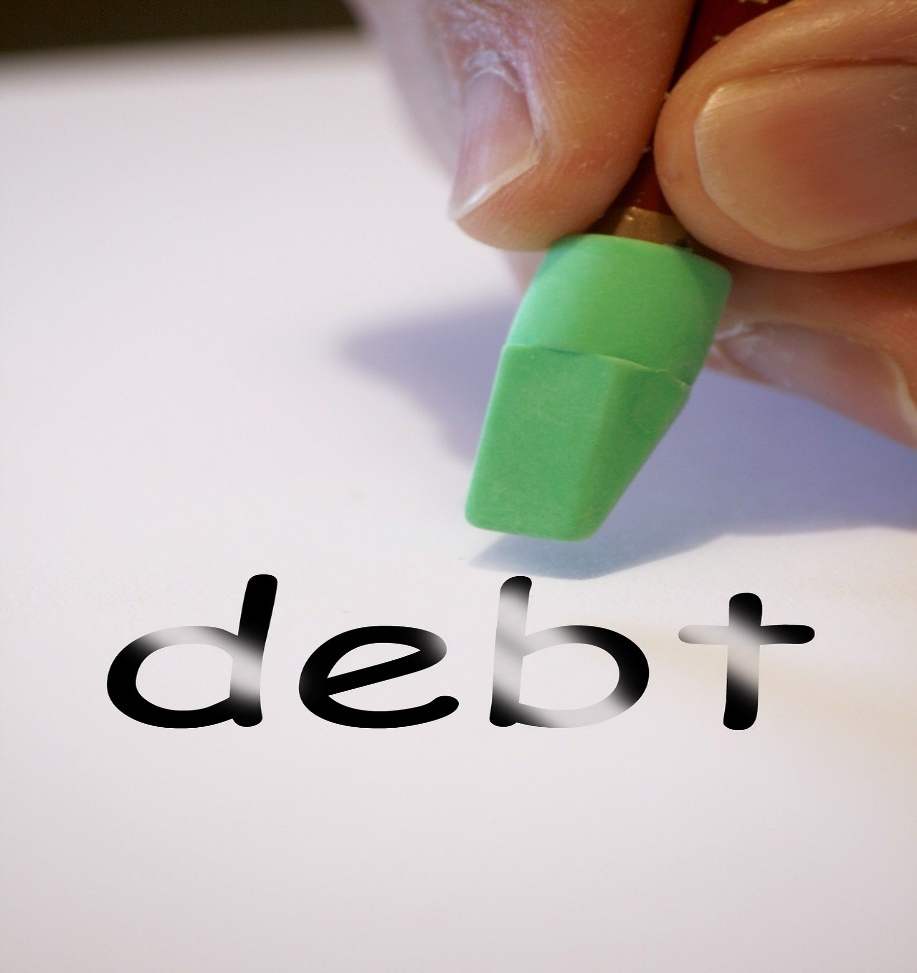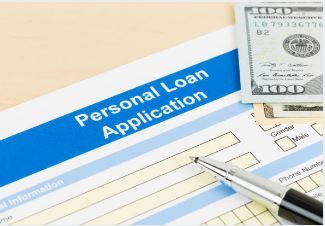Here is a common question people ask, "Are personal loans bad?" The truth is, a personal loan is neither good nor bad. It's a means to an end when you need money but doesn't have any.
A personal loan can help you achieve your real-life objectives, such as remodeling your kitchen, planning your wedding, or reducing debt. The best thing about personal loans is that they usually have a fixed interest rate and repayment duration, which is one of the reasons they've become so popular.
Unlike credit cards, which have fluctuating interest rates and monthly payments based on how much you borrow, personal loans provide consistency. Although a credit card can be used, the expense of doing so can be punitive in the form of high-interest rates.
When you need money but don't want to deal with credit cards or other types of lending, such as payday loans, you should check into how to secure personal loans that meet your needs.
Are you applying for a personal loan for the first time or considering it? Before you begin, read this guide to learn more about the requirements, possibilities, and process of obtaining a personal loan, which will assist you in making the best decision possible.
What is a Personal Loan?
A personal loan is a money you lend from a bank or lender and then pay back over time with interest. Payments can be made in monthly installments over a period of time ranging from 6 months to many years.
The loans range in amount from $1,000 to $100,000 and are repaid in fixed sums over two to five years, with some loans lasting up to seven years. The interest rate is determined by a variety of factors, including your credit score, income, and other considerations.
Personal loans have a higher interest rate than other forms of credit, although they are usually less expensive than credit cards. These loans are used to pay for home renovation projects, consolidate credit cards, support a major purchase, or finance a significant personal event. The maximum amount a lender will provide, as well as the ultimate interest rate, is determined by the borrower's credit score.
One of the best things about a personal loan is that it doesn't demand any collateral or security, such as property, stock, or a valuable object you agree to give up if you can't repay.
Types of personal loans
While most personal loans are unsecured, certain lenders do provide secured personal loans.
1. Secured personal loans
This type of personal loan necessitates the provision of collateral, such as a car or valuable jewelry. Secured loans often offer lower interest rates than unsecured loans because the lender assumes less risk.
2. Unsecured personal loans
Unsecured loans do not demand collateral. Because these loans are riskier for lenders, they usually have higher interest rates and stricter credit standards. While missing payments will harm your credit, you will not be at risk of losing your property.
Uses of Personal Loans
Personal loans are used for different purposes. They are commonly used for the following purposes.
1. Consolidation of debt
One of the most common reasons for applying for a personal loan is to consolidate debt. Debt consolidation loans allow customers to simplify their finances by consolidating multiple loans and credit card balances into one personal loan.

2. Buy a car
Buying a car with a personal loan and paying it off each month is one method to get behind the wheel sooner.
3. Home remodeling
A personal loan can be used to renovate a home or make necessary repairs, such as mending the plumbing or fixing the electrical wiring. Personal loans, unlike home equity loans, don't usually need you to use your home as collateral because they are unsecured.

4. Wedding expenses
Even when trying to stick to a budget, weddings can rapidly become excessively expensive. Applying for a personal loan for wedding can help overcome a gap or pay for all aspects of the wedding.
Vacation
A personal loan can be used to fund your trip. If you want to have that dream vacation and don't want to use your credit card to pay for the holiday, you can use a personal loan.
Other use of personal loans includes
How Do Personal Loans work?
You can be asked why you need to borrow money as part of the personal loan process. Personal loan lenders use the information you offer to make decisions about loan terms, and one of those factors is your motive for borrowing.
When you're authorized for a personal loan, the funds are sent directly to your bank account. You can occasionally request that your lender pay your bills directly if you're seeking a loan to refinance current debt.
If you do receive your funds, be prepared to begin payback within 30 days. If you have a fixed-rate loan, your monthly payments will remain the same until you pay off the debt. If you have a variable-rate loan, your interest rate will fluctuate from month to month, potentially changing the amount you repay.
How to Get a Personal Loan
If you need a personal loan, compare many lenders to discover the best interest rate. Begin with your existing bank, then go to online lenders, local credit unions, and other financial institutions.
Most lenders will let you become prequalified, allowing you to examine your possible interest rates and terms before you apply, all without putting a complicated inquiry on your credit report. You should evaluate loan terms and costs in addition to interest rates.

You'll submit a complete application with your loan details, personal information, and income verification documents once you've found a lender you prefer. This stage of the process is usually short for most lenders; if you provide all the required documentation, you could have your funds in a matter of days.
Personal Loan Application Process
A personal loan can be obtained in two ways.
1. Offline Process
The following is the procedure for applying for a personal loan at a financial lender's branch:
If you are confirmed to be qualified, the loan amount will be deposited into your bank account.
2. Online Process
If you already have a relationship with the financial institution, you can apply for a personal loan through your online account and may be qualified for a pre-approval. Customers who are not eligible for a personal loan can apply for one online by following the steps outlined below:
If you are confirmed to be qualified, the bank will deposit the loan funds into your bank account.
Documents Necessary for a Personal Loan Application
Tips for getting your loan approved:
Here are some tips to help you increase your chances of getting your loan approved.
Know Why You Need a Personal Loan
It's essential you know why you require a personal loan. A personal loan can be used for a variety of purposes. Some well-known instances include:

Things to Consider Before You Apply for a Personal Loan
While quick cash sounds appealing, keep in mind that you'll have to begin repaying your loan right immediately (usually within 30 days). Before you take out a personal loan, make sure you know what you're going to use it for and how you'll pay it back.
Here are some of the things to consider before applying for the loan
1. Interest rates
Most personal loans have fixed-rate, which means your monthly payment will remain the same for the loan duration. A variable-rate personal loan is available in a few situations. If you choose this, be sure you're okay with your monthly payments fluctuating as interest rates rise and fall.

Ensure you are comfortable with the interest rates before applying.
2. The size of your loan
Lenders provide loans ranging in size from $500 to $100,000. Consider how much you can afford to pay each month before applying for a loan.
3. The loan's duration
The time it takes to repay the loan is typically between one and seven years. The longer the term, the lower your monthly payments will be and the higher the interest rate.
4. Fees
Some lenders charge origination costs (also known as sign-up fees), although these can be avoided.
5. Know the Amount You Need to Borrow
The simplest technique to figure out how much money you'll need is to look into the total cost of the expense. The majority of lenders have a minimum and maximum loan balance. A personal loan can range from $1,000 to $100,000, so you'll need to plan ahead to figure out how much money you'll need.

It's also worth noting that many personal loans include origination costs. Origination costs are a proportion of your personal loan that you pay to the lender. Most lenders charge an origination fee ranging from 1% to 5% of the total loan amount. Find out if your lender charges origination costs by contacting them.
Knowing this information will help you know how much you will borrow.
Know how much time you need to repay the loan
Before applying for the loan, know how long it will take you to pay it back. To keep your monthly payments low, it can be tempting to choose the most extended loan repayment term available. However, it's a good idea to think about repaying your debt in the quickest time possible.
Wrong Reasons to Apply for a Personal Loan
Do not apply for a personal loan if,
Common Mistakes When Applying for a Personal Loan
Here are some of the most typical mistakes people make when taking out a personal loan, along with tips on how to avoid them:
1. Borrowing more than you can afford
If you apply for a personal loan and default on payments, you will incur a high interest rate in the long run. You may be charged a late fee, and your credit score may suffer as a result.
Use a personal loan repayment calculator to estimate your monthly payment and see whether it fits into your monthly budget before taking on debt.
2. Getting stuck with high costs
Getting estimates from various lenders will help you get the best offer and possibly save you money on interest. Before applying for a loan, compare interest rates, fees, and the lender's reputation.
3. Ignoring the loan costs
Even if you're aware of your personal loan's interest and fees, you might not consider how much you're paying. Before taking out a loan, use a loan calculator to get a sense of what you'll spend so you can be sure you're comfortable with the costs
Conclusion
Personal loans can be used for just about anything, which is why it's referred to as "personal." Personal loans are an excellent method to consolidate debt and finance large purchases, but they should always be used properly.
You should be aware that taking out a personal loan can increase your debt burden. Still, if you practice effective debt management, you'll discover that a personal loan can be a helpful financial instrument.